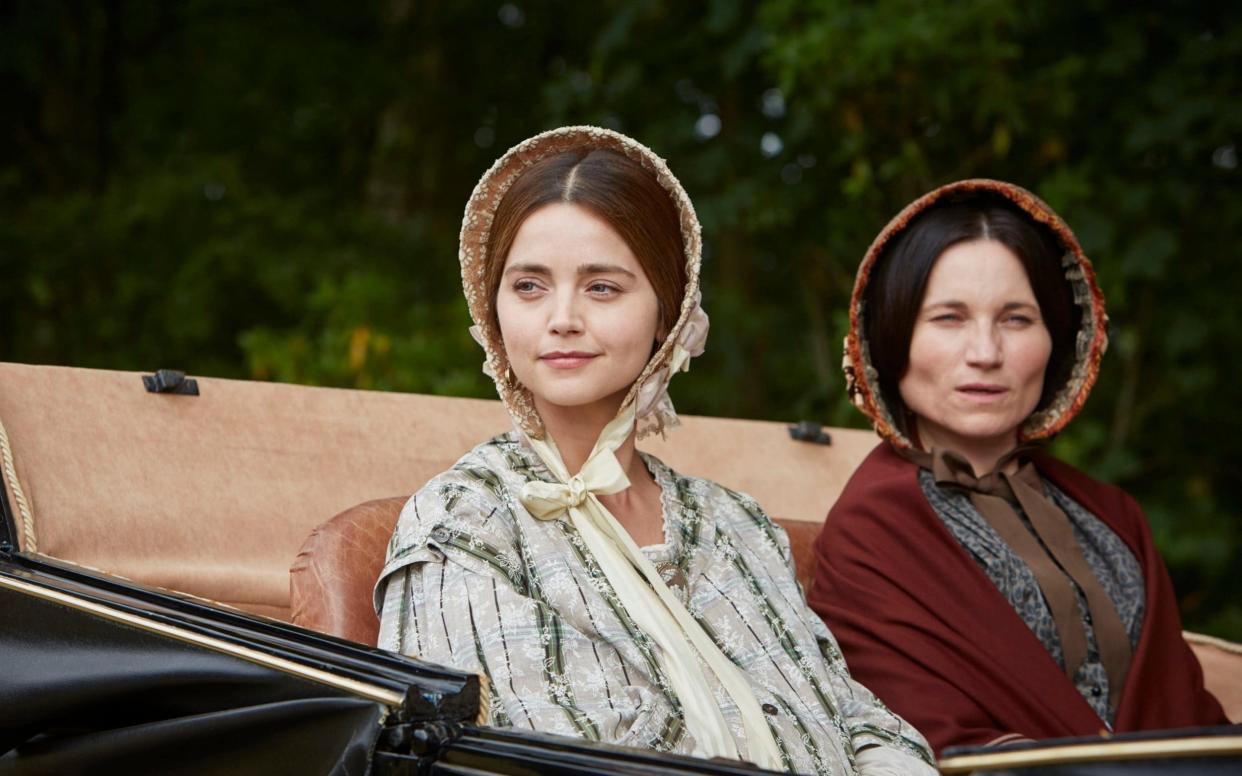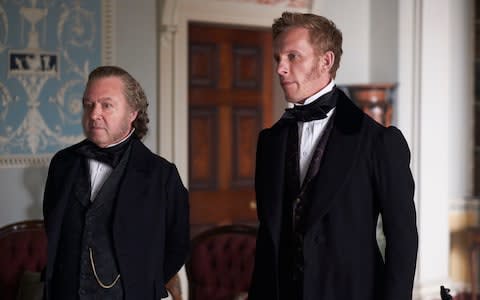Victoria, series 3 episode 1 review: Victoria returns with poise, passion and higher stakes

As a slightly peculiar A-level student, I used to think there was nothing more exciting than the history of mid-Victorian Britain with its Great Reform Acts, its Corn Laws and its Chartism. My 16-year-old self would doubtless have been thrilled by this third series of Victoria (ITV) which began in 1848, The Year of Revolutions, of Chartism’s last gasp and the PIN for my Griffin Savers Account (told you I was odd).
The 40-year-old me was less enthralled, although Jenna Coleman’s performance as Victoria remained an admirably adept balancing act of poise and passion, and perhaps a shade more Not Amused than previously. Laurence Fox’s arrival as one of her nemeses, Lord Palmerston (a man who, urban myth in Lower 6th History had it, expired mid-roger on a billiard table), jazzed things up considerably.
Fox brought all his natural hauteur to bear on this towering figure, a foreign secretary whose rapacious appetites and roving eye left Victoria unimpressed and were summed up by his Swiss Toni-esque observation that “the British public is like a beautiful woman”. Poor John Sessions rather wilted in his presence as PM Lord John Russell, who was not the fuddy-duddy doormat depicted here, but undoubtedly a man with his best days behind him.

Victoria took equal exception to Palmerston’s crowing over the fall of the “autocrats of Europe”. The first of these was Louis Philippe (Vincent Regan), fleeing France to seek asylum in London just as the capital itself began to simmer with insurrection. Albert (Tom Hughes) was spurred into an unlikely incognito visit to the slums, keen to understand why people were taking against them: poverty allied to lack of representation made for a potentially explosive cocktail. The working-class political reformers the Chartists, torn between violent revolution and peaceful protest, readied the fuse. “We are not a revolutionary people,” reckoned Victoria; a claim likely to be tested severely in the coming weeks.
It was a tough hour for Her Majesty, who also faced the unwanted return of long-estranged half-sister Feodora (an enigmatic Kate Fleetwood), as well as politically awakened servants and her waters breaking for child number six as the barbarians gathered at the gates. The below-stairs action dragged and some of the history was questionable but, thanks to Coleman, Fox and the exemplary visuals (the episode was dedicated to the series’ late production designer, Michael Howells), it sailed along serenely enough. B-minus, but encouraging signs, rather like my essays.

